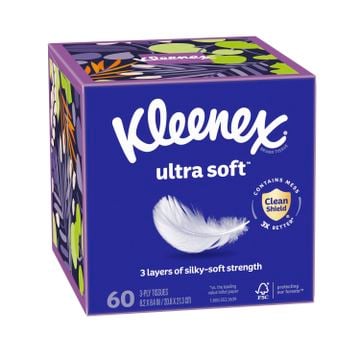
Dr Chrissie Jones discusses Anxiety and Allergies in her latest report below...
Stress and anxiety are closely linked to allergies, not only potentially leading to their development, but also playing a role in making symptoms worse1234.
At a symptom level, it can sometimes be hard to tell the difference between allergy and the impact of stress and anxiety, as the way our bodies respond can feel very similar. Anxiety and allergic reactions can both include shortness of breath, chest tightness and a racing heart.
Allergy symptoms can also be incredibly frightening and lead to allergy anxiety and hypervigilance, where we are constantly on the lookout for threat and danger or for signs of those bodily sensations. This can in turn act as a potential anxiety and stress trigger.
High stress situations are more likely to cause this cycle, and the challenges brought about by lockdown and the impact of COVID 19 have been particularly stressful and anxiety-inducing for many.
Here are some strategies to help cope with anxious feelings and reverse the cycle:
- Manage the physical sensations of anxiety Shallow breathing and tense muscles are linked to stress, worry and anxiety so try the following techniques to try to combat these (try using these techniques when you are not anxious)
- Mindful and calm breathing – consciously slowing down your breath and breathing deeply and gently
- Meditation5
- Muscle relaxation – squeezing or tensing muscles in your body
- Gentle exercise – try going for a walk, run, swim, cycle or yoga. Or something which exerts some physical effort such as gardening or housework
- Increase our activity levels Sometimes when we feel anxious and low, taking part in any activity can feel difficult so we stop doing things which we normally do even when we usually get enjoyment from them. Whilst we might feel relief in the short-term by not doing these activities, this only serves to reinforce our avoidance.
- Create a list of your routine, necessary and pleasurable activities
- Create a ladder of the list and rank your activities by easy, medium or difficult
- Schedule your activities using a diary or calendar
- Do the activity and rate your mood and sense of achievement after
- Review your week; how did doing the activities effect your mood? What can you do next week? Were there any challenges? Think about how you might overcome them
- Identify negative and unhelpful thoughts Sometimes, the extent to which we are worried or anxious outweighs the actual risk we face which can make us behave differently (e.g., avoiding situations or taking too much medicine). This can lead our bodies to respond in ways which end up reinforcing our unhelpful behaviors and thoughts.
- Identify our worries Everyone worries about things from time to time but sometimes our worries can feel overwhelming and unmanageable. This tends to happen when our worries are about things which are uncertain, unpredictable and uncontrollable.
- Identify the problem and try some solutions Although it’s best to let go of some worries (ones which are about uncertain, unpredictable and uncontrollable events), other worries relate to current and realistic problems which may be resolved by practical solutions
- Identify the problem and what you can do about it (even if your options seem far-fetched.)
- Look at the pros and cons of all the solutions and select your best option
- Plan and schedule how you will do it
- Put your plan into action
- Review how well it went; did it work? Do you have to go back to your list? What got in the way?
Try to practice more balanced thinking by challenging those unhelpful thoughts and forming more realistic ones based on what is more likely to happen
Try writing your worry down and ask yourself “Can I deal with this worry now?” If the answer is yes, problem-solve it. If the answer is no, let the worry go and change the focus of your attention
All content and advice is provided on behalf of Allergy UK in partnership with Kleenex®.
1 Smith HE, Jones CJ. Psychological interventions in asthma. Curr Treat Opt in Allerg 2015;2,155-168.
2 Chida Y, Hamer M, Steptoe A. A bidirectional relationship between psychosocial factors and atopic disorders: a systematic review and meta-analysis. Psychosom Med 2008;70(1):102–116.
3 Wright RJ, Cohen RT, Cohen S. The impact of stress on the development and expression of atopy. Curr Opin Allergy Clin Immun 2005;5(1):23–29
4 Yonas MA, Lange NE, Celedon JC. Psychosocial stress and asthma morbidity. Curr Opin Allergy Clin Immun 2012;12(2):202.
5 Paudyal P, Jones CJ, Grindey C, Dawood R, Smith HE. Meditation for asthma: systematic review and meta-analysis. Journal of Asthma 2017;30,1-8.





